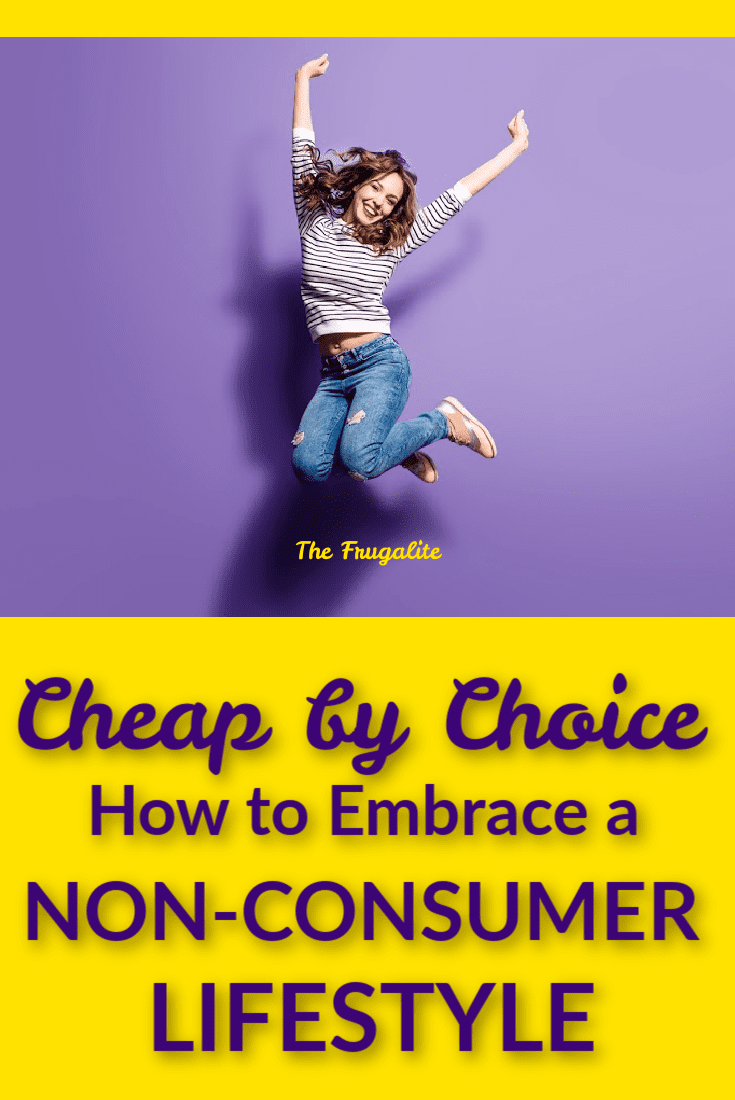(Psst: The FTC wants me to remind you that this website contains affiliate links. That means if you make a purchase from a link you click on, I might receive a small commission. This does not increase the price you’ll pay for that item nor does it decrease the awesomeness of the item. ~ Daisy)
As a parent, sometimes I’ve asked my kids to do things they don’t want to do. (Haven’t we all?) The biggest key to their success in the endeavor is their attitude.
Scenario #1:
Me: Kiddo, it’s time to swap your winter clothes for your spring clothes. Please go through your closet, sort through your winter clothes, and get rid of the stuff that’s too small or that you don’t want anymore.
Kiddo: I don’t want to! I hate this! It’s not fair!!!
Kiddo goes through the closet, angrily shoving things in a garbage bag without taking a good hard look at things. She sulks, pouts, and is otherwise miserable. She gets the job done but makes sure that it is unpleasant for all of us.
Scenario #2:
Me: Kiddo, it’s time to swap your winter clothes for your spring clothes. Please go through your closet, sort through your winter clothes, and get rid of the stuff that’s too small or that you don’t want anymore.
Kiddo: Okay – this gives me a chance to see if there’s anything I can re-purpose, too!
Kiddo goes through the closet, eagerly sorting items into piles. She comes up with a good stash of ‘new’ materials for craft projects, a bag of donations, and 2 shirts that were buried at the back that she forgot she had. The job is done and the end result is its own reward.
Switching over to a more frugal lifestyle can be just like the above scenarios. You can embrace it and relish the challenge of it, or you can sulk, pout, and be absolutely miserable.
Sometimes a reader comments on my website or sends me an email telling me that by preaching a frugal lifestyle, I am, in fact, giving in to some kind of mass mistreatment of our economy. They feel that I should be recommending other types of resistance. They say, “Why should I have to do that when THEY have trashed our economy? Why should I do without?”
I understand, truly, where these readers are coming from. They’re right – we shouldn’t have to be thrifty because the politicians and bankers (to name a few culprits) have trashed the economy for everyday people. However, I choose to. I opt to live a frugal, non-consumer lifestyle because of my personal experiences. Disengaging from the uncaring financial machine has provided me with a freedom I never had when I was pulling down close to six figures in a corporate game of mousetrap.
The Story Behind My Advent into Cheapskatery
I suffered some great financial losses back in 2010. I lost my house, my car, and my business. We had been living frugally in comparison to many people, but not frugally enough to counteract that personal economic disaster. Looking back, I’m not sure if any amount of frugality could have really made a difference. (I wrote about it in great detail in my book on the topic.)
It was a devastating blow, and it came right on the heels of the loss of my sweet father. We became even more thrifty of a necessity, and I resented the need to do so every single time I stepped into a mall, purchased groceries, or emptied my bank account on payday to keep the utilities on and a roof over our heads, with nothing extra left over for fun, or even secondary needs. It was a very grim time for our family.
When the depression began to lift, I saw that getting out from under that mountain of debt had actually provided me with a gift of enormous freedom. I realized that my life could take a different turn. I was no longer tied to anything.
And that’s when I began to embrace my Frugalite side.
I realized that I no longer needed to buy into the system that had been the source of my economic problems. By supporting them – the giant corporations urging me to spend – I wasn’t supporting us. By being as self-sufficient as possible, by cutting my spending, and by not needing “the system”, I was winning. I was becoming truly free.
Embrace your Frugalite side
Hard-core frugality is not just making a choice to buy the generic brand of laundry soap instead of a jug of Tide with scent beads. Hard-core frugality is buying the ingredients to make 5 times the amount of laundry soap for half the price of that name-brand detergent, all the while LOVING the fact that Proctor and Gamble are not getting your money. (Learn how to make your own detergent here.)
When you can cross that line between resenting the fact that you have to strictly budget to embracing the fact that by being as frugal as possible, you have a freedom you never dreamed of before, then you have begun to embrace your Frugalite side.
Being a black belt in frugality takes creativity and an optimistic outlook. It should never be some grim, sad thing that you have to do. It should be something that you choose to do. By finding joy in your non-consumerism, you will be far more successful at it. It becomes a game that you win if you can do something for free that others spend money on.
When you feel like you require less, then you are happy with less. This means that you have to spend less time working at things you may not truly enjoy to pay for the things that you never actually needed in the first place. This means that the money that you have goes a lot further
How to Become a Happy Non-Consumer
Be grateful. An “attitude of gratitude” is the most vital part of embracing your cheap side. If you’re happy with what you’ve got, you will find that you “need” far less than you did before. That’s because you aren’t seeking some momentary hit of joyous adrenaline by purchasing something. That rush rarely lasts and you’re just left with more stuff and less money.
Be creative. How can you make something, save something, or repair something in a totally original way? Embrace the challenge and tap into your creativity – you may just discover that, in your originality, you’ve come up with something far better than the purchased alternative. (We’ve found this to be especially true with fashion accessories, home decor, and birthday parties!)
Give. Don’t let your pursuit of frugality make you stingy. There are always people who are worse off than you. It’s important to give a hand up to those people. If your kids were hungry, or cold, or without shelter, wouldn’t you hope that some kind person would help them? Even at our absolute rock bottom financially, we donated one can of spaghetti sauce and a package of noodles to the food bank every week, which hopefully provided a warm comforting meal for someone who needed it. It isn’t really necessary to debate whether people are truly in need or just milking the system. That is a subject for them and their consciences. Just give. You are responsible for your intentions, not theirs.
Spend your money where it really matters. We opted to move to a very small community into a drafty little cabin in the woods. We made this decision as a family, in order to reduce our monthly output. By getting rid of “city rent” and all of the bills that came with it, we cut our monthly output in half. This means that I can spend a little extra on high-quality meats and dairy, for example. When my daughter needs new glasses, it’s not a problem to pay for them. It means my older daughter can get through college without crippling student loans.
Less need equals more time. Not only does a thrifty lifestyle mean that I can refocus where my money goes. It means that I can refocus where my time goes. I don’t have to work quite as hard on stuff outside the home and can focus on farm and family. I have the time to make hats and scarves instead of purchasing them. I have time to garden and can the harvests. I have time to perform money-saving tasks like cooking from scratch, which goes into a big happy circle of having more money to put towards important things.
Stay home. When you stay home more, you are tempted less. You aren’t thirsty, requiring a beverage. You aren’t hungry, requiring a snack. You aren’t using the car, requiring gas. You aren’t tempted by all the colorful and wonderful things in the stores.
Hang out with like-minded people. It is so much easier to embrace your cheap side if you don’t have people telling you how deprived you are all the time, or berating you for being too cheap to spend $27.85 on a movie ticket, popcorn and a soda pop. Most of my closest friends are thrifty. We swap clothing, we borrow and lend tools, and we cheerfully hang out without spending a dime. Instead of going out to sit in a boutique coffee shop sipping a $6 latte with whipped cream, we sit in the garden at one of our houses sipping a coffee that one of us made, along with a nice fresh blueberry muffin. We enjoy the same conversation we would have had at that coffee shop too. Instead of heading to the mall, we chat on Skype. When your nearest and dearest are on the same page, life is a whole lot easier.
Turn off the TV. People go to school for years to study how to make people want what they don’t need. That great big brainwash box sitting in the living room is a direct pipeline into your brain. From the beautiful homes on the TV programs, the fancy clothes and cars, and the ads for food, recreation and new cars, the whole racket is designed to make you feel you what you have now is inferior to what you could have. Kids are the biggest target of product placement advertising in popular shows. If you watch TV, limit it. Become aware of the scams and discuss them with your kids so that they can easily identify how marketers are attempting to manipulate them. (Confession: we do watch a little bit of TV in our home, and when we do, it’s a big game to identify the hidden ads. While this may sound contrary to the advice to turn the TV off, I believe that some limited viewing coupled with an awareness of the marketing techniques inoculates my children against the sales pitch.)
You’ve got to want it.
To switch over to a frugal lifestyle successfully, you really have to want to do it. If you’re constantly bemoaning what you don’t have, you’ll be miserable. If you are resentful that you can’t have “stuff” then you won’t stick to your frugal plan. The most important thing of all is to switch off your personal “want” button. When you don’t want or need the things that the big corporations are selling, then you are suddenly free of their restrictions. You are no longer a slave to the wages you must earn to pay for the things they tell you that you should have. You don’t have a lifestyle built on expectations, debt, and the never-ending search for happiness bought from a store.
I know that lots of you are already doing all of these things, and more…what are your suggestions for people who are new to the Frugalite side? How has the art of thrift changed your life and set you free?












11 thoughts on “Cheap by Choice: How to Embrace a Non-Consumer Lifestyle”
Daisy, you nail it. I have embraced a cheap frugality for decades.
The way I see it, I won’t be caught so much by surprise the next time the stores close due to lockdowns. Better to get winter clothes now than need them later and not be able to find them. Household stuff is what I focus on most. I got potpourri and figured that would add a nice touch to my room. It’s the small things that can make all the difference.
I live in a retail desert. I cut my own hair too. That came in handy when the salon was closed. Only one place for cheap household stuff other than dollar tree… Goodwill was closed during the first lockdown. The Kmart closed in April 2020.
No one makes fun of me now.
What a beautiful sentiment: “It isn’t really necessary to debate whether people are truly in need or just milking the system. That is a subject for them and their consciences. Just give. You are responsible for your intentions, not theirs.”
Thank you for sharing it and this article.
Great article. I like to make my money stretch so I can live better on less. I’m not interested in making the grocery stores richer so I buy on sale and the markdowns. I have better uses for any extra money I have. I call it intentional spending as opposed to just grabbing what looks good. I agree that attitude makes all the difference. We’ve many hard events/opportunities in our 40 years of marriage that required frugal living. I love getting good deals and take satisfaction in making or growing a lot of our stuff. You can waste/fritter your life away or spend it on doing meaningful things.
Ah, “Cheap”. I love it, I live it, and by living cheaply, it gives me the $$ latitude to splurge on cool things my wife and I enjoy.
And we are free. As avid preppers, we enjoyed watching our non-prepper friends try to buy toilet paper.
We used to be labeled by our monthly electric bills as in the worst electric hog in my area. Now we are the top electric misers! We keep the house wamer in summer, colder house in winter.. I bought really nice wool blankets at the factory closeouts and seconds at The Pendleton Factory Oregon 70% off. We open the windows at night to get the house cold during the summer. Also coffee pot was always on wasting 1000 watts For hours and hours. We bought a coffee pot that brews the coffee into a thermos and automatically turns off immediately. Coffee is never burned and stays hot all day. Our Electric usage went down big time. At night, if there is coffee left in the thermos i take off the top and put the rest in the refrigerator overnight. I can reheat in the morning in microwave or keep to use as iced coffee during the day. Yes, we reallly like coffee that much! We use only LED lights. Amazon rechargeable batteries for small items.
Also i was using a lot of kleenex blowing my nose every morning. I found out I can use microfiber cloths (harbor Freight or the dollar store) and blow my nose all day into one of these. Just wash.
Then I bought an add-on bidet to my toilet for about $35 on Amazon. Easy to install. Amazing! Never felt so clean. Just use a little toilet paper to wipe off water from a clean bum! I saved so much money i added bidets to the other two bathrooms in our house. I use 400-500 percent less toilet paper!
Love the attitude – it makes all the difference. My husband & I have always felt this way & it just evolved into a chosen lifestyle. We were burglarized in the early ’90s, which destroyed our business & income overnight. We lived on our credit cards while we got back on our feet, then went to work paying them off. At that point, we decided we would not be in debt again. Finally, when it came time to retire, we were able to do so with our home paid for, our vehicles paid for & some money in the bank. We still live that same lifestyle. We have everything we need & since we aren’t always out spending, when something breaks down or finally dies, we can replace it without causing financial panic. We don’t feel at all deprived and the freedom from debt gives us tremendous peace of mind & feeling of security. We just choose to live simply. It works for us.
We had several kids with birthdays in October and couldn’t afford sepearate parties, so the yearly Halloween birthday party was instituted. We live outside the states so it was not a celebrated holiday. We took the neighbours kids and friends on prearranged trick or treating, loads of games and a movie shown on a sheet in the back yard and a few light treats.
What was a super cheap effort to dodge doing several expensive birthday parties for my children became a neighbourhood tradition for years to come that brought together many families and neighbours and brought greater unity and much greater security to our area. It was better than a neighbourhood watch program. Cheap can definitely pay off in other ways.
What a fantastic idea! I absolutely love it!
For years I have gotten the greatest satisfaction from working in my garden & mini-orchard; then canning the harvest. Now, I am expanding to making my own wine from some of that harvest. Yes, I had to buy a few things to get started but I will not be buying wine from a store & I like learning new things. I love looking at a jar or a bottle and knowing that I grew & processed what’s inside it.
Especially after the recent lockdowns, I have discovered there are few places that I want to go because I am so blessed by what I can do at home.
For the first 10 years of my daughter’s life I was a stay at home mom which of course limited the money we had to spend on anything. I had a small, intensively cultivated garden. We ate a lot of casseroles that extended the small amounts of meat and fish we could buy. Our city had a zoo with free admission for children and 25 cent admission for adult residents; so the my daughter and I made monthly trips there. We squeezed out enough for my husband’s antique car club membership (even without an antique car) which gave us admission to a lot of family events. I made all of my clothes as well as my daughter’s. It was not easy but we tithed to our church and donated to a food bank. We lived well enough on the one income that a co-worker of my husband inquired as to whether we had an income beyond his salary. We considered a monthly trip for lunch at a cafeteria a great luxury even though we got a limited number of cheap items (we even split one dessert three ways!). When I re-entered the work force we kept almost all of these habits. The great concession was buying a junky antique car that my husband restored slowly, doing almost everything himself to save money. Our daughter graduated from college with no debt, holding campus jobs and babysitting to supplement our contribution. In fact she actually had savings at graduation.
Well done! I love hearing personal stories like yours!